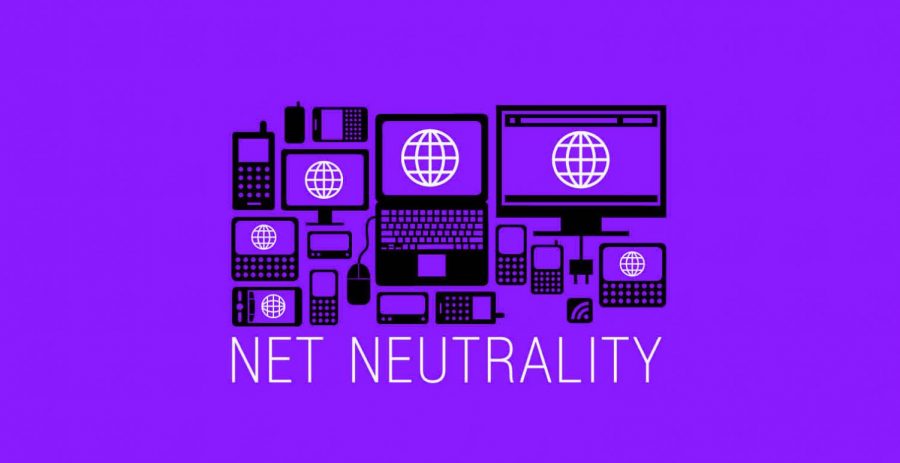Technology pulses through the modern world as an irreplaceable asset in our daily lives. Arguably, technology has altered every aspect of our generation, one that hasn’t lived in a world without the endless information of the internet available at a finger’s touch, leading us to often take for granted the accessibility of this luxury. However, the basic principle of internet equality is now being tested with the Federal Communications Commission’s repeal of the Net Neutrality bill.
Before exploring the ethical and fiscal factors of Net Neutrality, what is it exactly? By definition, Net Neutrality is the principle that Internet service providers should enable access to all content and applications regardless of the source, and without favoring or blocking particular products or websites. In other words, Net Neutrality prevents private businesses from regulating and buying out the public’s access to the internet. Regulation takes shape into three forms- blocking, throttling, and paid prioritization.
Now let’s imagine how this would look if this repeal came into fruition: mass communication corporations would be able to give financial compensation in exchange for creating “fast lanes”- that is quicker internet speeds. Certain areas could receive prime access to internet services as others would be forced to deal with the mundane frustration of longer buffering and downloading times. Furthermore, service companies would be granted the ability to block certain sites and content. Excluding the corporations funding these changes, a repeal would mean a loss of internet freedom for all.
These implementations are not as far off or unrealistic as some may think. In Portugal, whose government allows certain loopholes in their net neutrality policies, payment for internet services has already been enacted. People are required to purchase different plans for basic services such as social media, messaging systems, and even email programs.
The large telecommunication including AT&T, Verizon, and Comcast argue that a repeal of Net Neutrality would create less government interference in business, an act in coherence with laissez-faire policies. However, eliminating the restrictions placed on internet services would ultimately destroy the protections that are preventing them from monopolizing the entire consumer market.
Yet, not all corporate companies are supporting the repeal of Net Neutrality. Netflix, Amazon, Reddit, Twitter, Burger King, and Spotify are just a few of the many companies who are standing beside activists for equal internet.
In a statement addressing the issue, Twitter said, “Net Neutrality is foundational to competitive, free enterprise, entrepreneurial market entry — and reaching global customers…You don’t have to be a big shot to compete.”
Why should we care about a distanced bill that may or may not be passed? We already have to pay for WIFI in most cases, so what difference would paying for internet access make? But Net Neutrality is what protects the small businessmen from being outcompeted by monopolies. Without Net Neutrality, the very essence of the American dream- reaping the fruition of one’s own hard work and inventive dedication- could be corrupted by the mega-corporations intent on eliminating the level economic playing field. The internet is a commonplace of self-expression, a tool for education, and a bridge between cultures. In conclusion, if the repeal of Net Neutrality goes through, then we will lose the equality of the internet.
Take action; share your voice: www.change.org


